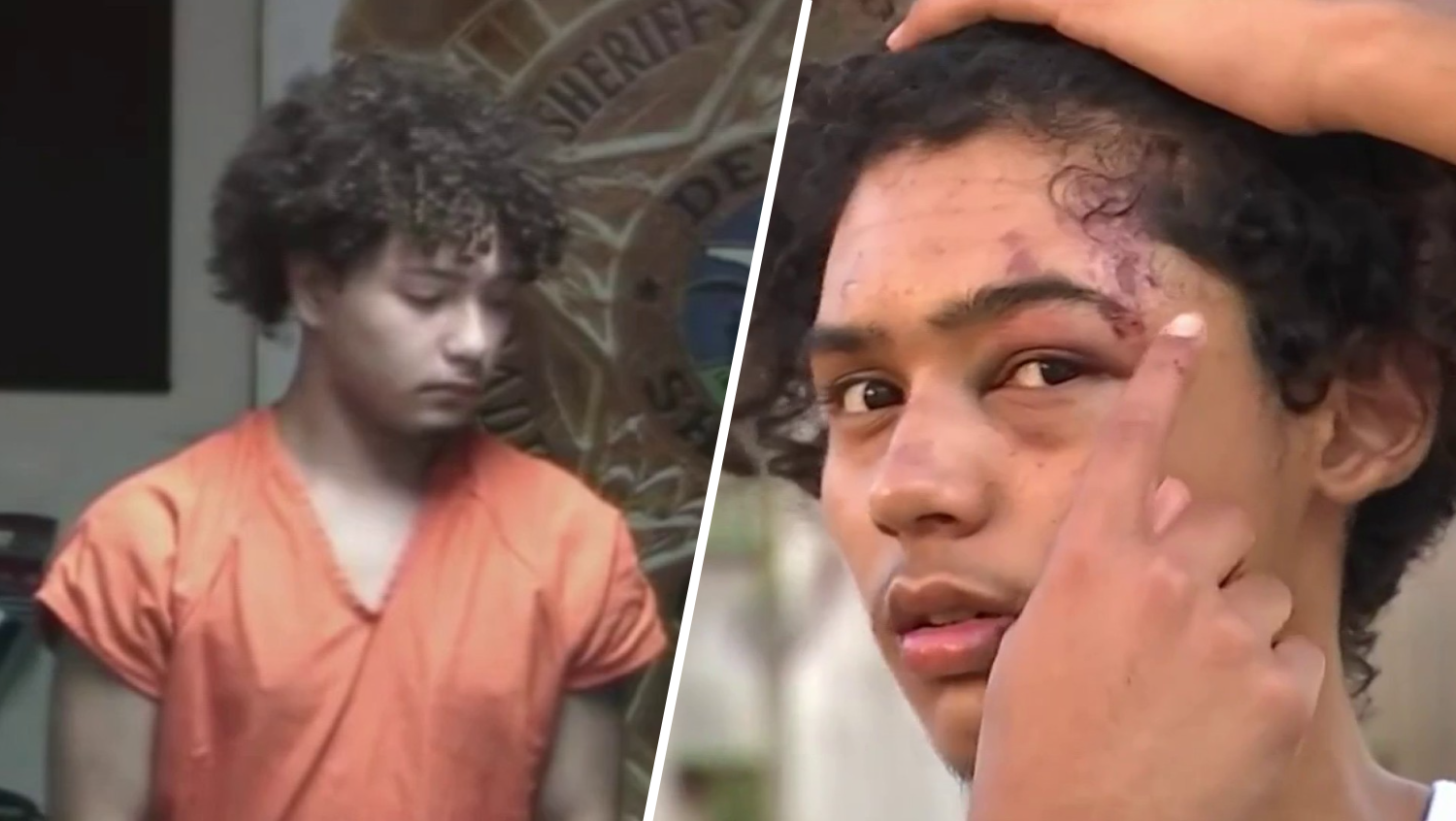We walked into Richard Berman’s physics class at Sheridan Tech High School in Fort Lauderdale and found him with some kind of sci-fi-looking goggles on his head and a controller in his hand.
“You’re going to click on this and it’s gonna open up this world,” Berman is telling his students.
A world of possibilities called mixed reality, a combination of virtual surroundings with the physical world through the Magic Leap goggles.
A computer monitor shows the kids what their teacher is seeing.
Then the students get their first crack at trying the system.
“It’s like you’re actually experiencing it,” one student says.
“I see bricks on the floor and I’m trying to make it stack up,” says her classmate.
Local
The students are on the cutting edge of technology, using the headsets made in Broward County by Magic Leap.
“It’s like what you see in the movies, we’re slowly getting to what we see like Tony Stark with his high advanced technology, I feel that’s where we’re going with this,” said student Demond Thomas.
I asked him if he thinks he’s Iron Man when he wears the headset.
“Pretty much, yeah,” Demond said with a chuckle.
So far, eight high schools in the Broward County Public School district have the Magic Leap system. The Florida Panthers hockey team donated 25 of the headsets to the school district. The goal, no pun intended, is to eventually have the system in every high school.
“You know that when you drop something gravity’s gonna take over, it actually behaves based on the laws of physics,” Berman says, as he demonstrates the system.
As a physics teacher, he should know. Berman says the mixed reality technology will be a powerful teaching tool because concepts and data can be turned into a visual, immersive experience.
“My mind is just racing,” Berman said. “But I really see that for some people that might have a hard time with certain concepts this could really be a game changer, especially for some of the more high-tech or advanced concepts in physics or in science of any stripe.”
“Learning about things that are not easily tangible,” added Dr. Lisa Milenkovic, the district’s STEM supervisor. “Like climate change, change the year to 2030, what temperature is it gonna be, and how’s the sea level gonna change because of that.”
The options in a system like this are limited only by the student’s or the teacher’s creativity, so it’s definitely not just for science geeks.
“It’s a way to engage students that wouldn’t normally think of themselves as scientists or computer scientists, right now they say oh, this is cool, let me make something, an artist, a musician, there’s apps for that, too,” Milenkovic explained.
The next step is coding. Students will be developing their own apps for the Magic Leap system, working with engineers from the company.



